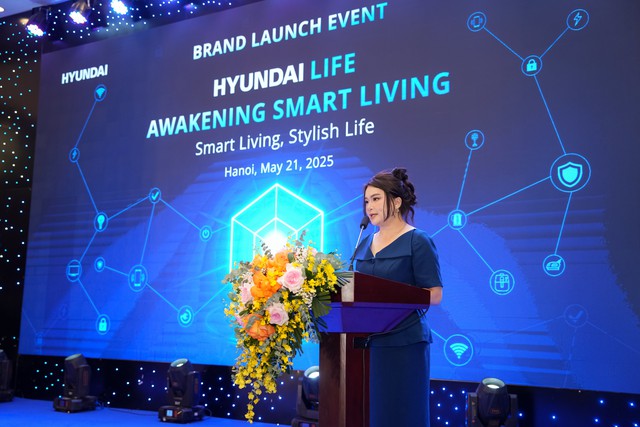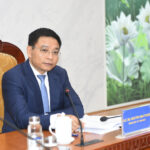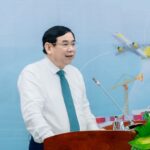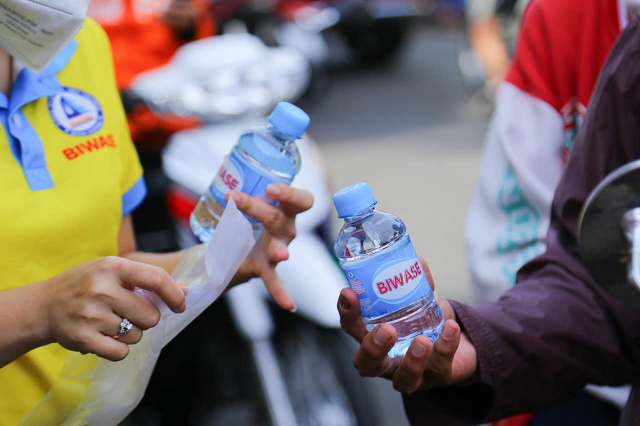This move by Hyundai signifies not just a brand expansion but also highlights the intensifying competition within the consumer goods industry, where success lies in controlling distribution systems and understanding local markets.
On the evening of May 21st, at the National Convention Center in Hanoi, Hyundai Corporation Holdings, a leading South Korean general trading company, in collaboration with its strategic partner, GPLUSG Corporation (GoodPlusGood), hosted a launch event for the Hyundai Life product group. This marks Hyundai’s first official entry into Vietnam’s consumer market after establishing itself in the automotive and heavy industry sectors.
The event gathered over 150 guests, including representatives from electronics associations, potential retailers and distributors, media professionals, actress Bao Thanh, and prominent content creators such as Gia Dinh Simple and Jesse & Keira, among others.
Vietnam’s Consumer Economy: A Billion-Dollar Market with Untapped Potential
According to Vietnam’s Ministry of Industry and Trade, the country’s home appliance market is currently valued at approximately $13 billion, growing at an average rate of over 10% per year—a figure that attracts the attention of international manufacturers. Additionally, rapid urbanization, a growing middle class, and shifting consumption trends toward experiential and aesthetic values are creating a segment of consumers willing to pay a premium for high-quality products with clear origins and strong brand recognition.
“Vietnamese consumers are evolving rapidly. They not only care about functionality but also expect sophisticated design, durability, and after-sales service,” said Ms. Nguyen Thi Hong The (Kate), CEO of Hyundai Electronics Vietnam, explaining the rationale behind the launch of Hyundai Life.
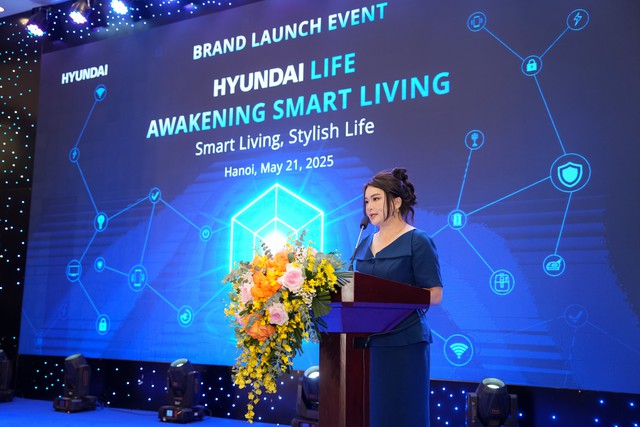
Ms. Nguyen Thi Hong The (Kate), CEO of Hyundai Electronics (Home Appliances) Vietnam
Three Key Product Categories, but Distribution is the Deciding Factor
Hyundai Life is introducing three main product categories to the Vietnamese market: home appliances, lighting equipment, and smart door locks. The home appliance segment includes popular urban household items such as air fryers, air purifiers, vacuum cleaners, fans, and air conditioners.
“Instead of pursuing a low-price strategy for high sales volume, we focus on delivering value, quality, and an exceptional customer experience,” said Ms. The.
However, the critical element in Hyundai’s strategy does not lie in its products but in its distribution system.
Mr. Lim Hyun Dai, Chairman of GPLUSG Corporation, Hyundai Life’s implementation partner in Vietnam, shared: “We consider distribution as the most important pillar. Hyundai Life prioritizes building a flexible distribution network that combines traditional channels (agents, regional distributors, and retail chains) with e-commerce.”
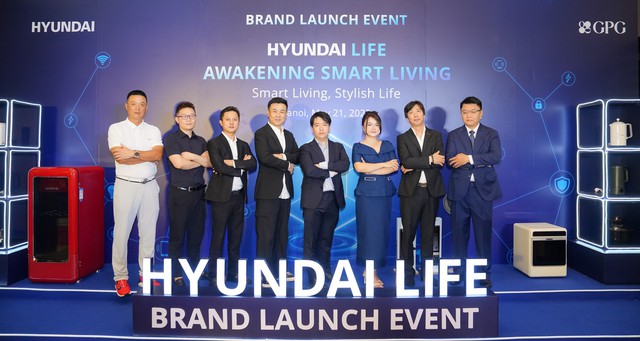
Mr. Seungju Lee, representing Hyundai Corporation Holdings (4th from left), Mr. Lim Hyun Dai, Chairman of GPLUSG Corporation (2nd from left), and CEOs of the Hyundai Life ecosystem at the event
Distribution Policies Designed for Mutual Profitability
Hyundai has announced clear and flexible distribution support policies, including competitive discounts, display support, product promotion at sales points, and regular training for staff.
“We work closely with each distributor to jointly develop optimal business plans—from marketing to sales tools and sales promotion. Our goal is to develop long-term partnerships, not one-off transactions,” said Mr. Nguyen Hoang Thong, Sales Director of Hyundai Electronics Vietnam.
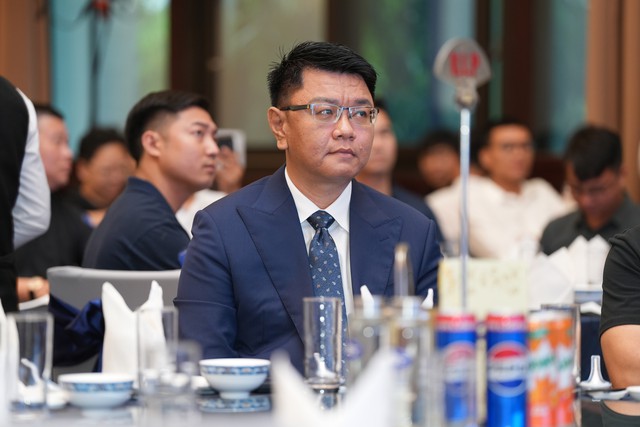
Mr. Nguyen Hoang Thong, Sales Director of Hyundai Electronics Vietnam
All Hyundai Life products come with a clear warranty policy, readily available spare parts, and specialized after-sales service provided by a system operated by GPLUSG. This is a significant advantage in a market where consumers are increasingly cautious about after-sales service, especially for home appliances priced between $1 million and $5 million VND.
Opportunities for Small and Medium-Sized Distributors: Joining the Hyundai Ecosystem
Unlike many international brands that focus on large retail chains, Hyundai Life does not operate its own retail network. Instead, it actively develops a diverse distribution system. Medium and small-sized distributors and provincial agents will be responsible for bringing the products to market, while Hyundai Life focuses on brand support, communications, training, and sales tools.
“Hyundai offers opportunities to medium and small-sized distributors who are committed to investing, understanding the market, and seeking long-term partnerships. We share market information, organize training sessions, and provide communications support to help our partners increase their sales,” said Mr. Thong.
Hyundai Life has completed its product portfolio for phase 1, focusing on easy-to-implement, easy-to-sell, and easy-to-service products to optimize its market expansion process.
Positioned in the Upper-Middle Segment, but Price is Not a Barrier
Despite employing advanced technology and adhering to Korean production standards, Hyundai Life products are priced competitively for the Vietnamese market. The price range typically falls between $1 million and $5 million VND, targeting the rapidly growing middle-class segment in large cities.
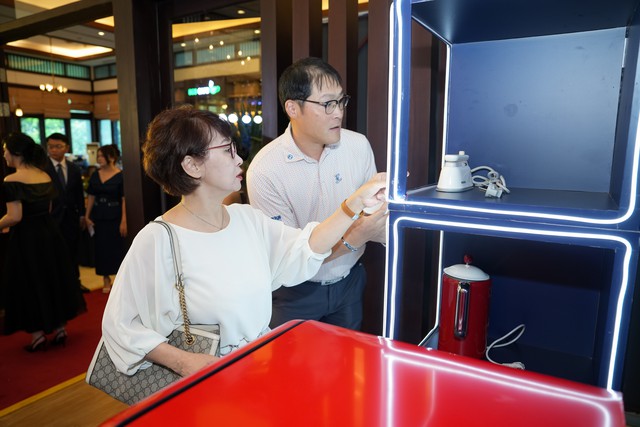
Guests visiting the exhibition area for home appliances
Over the next five years, Hyundai Life aims to capture approximately 10% of the market share in several home appliance segments before expanding into more specialized lines, such as air conditioners, robot vacuum cleaners, and AI-integrated smart locks.


























